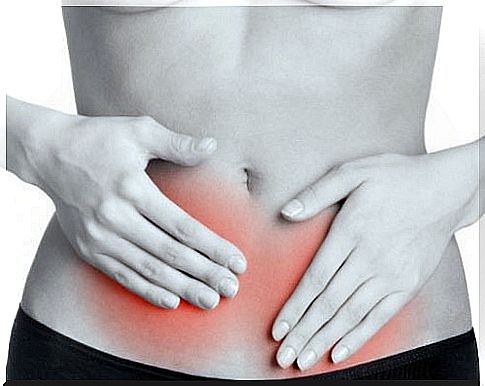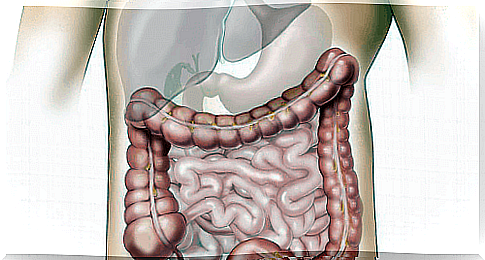12 Signs Indicating A Damaged Intestinal Flora

The intestinal flora, known as gastrointestinal flora, microflora or gastrointestinal microflora, is the set of millions of bacteria that live inside the organism.,
These microorganisms can be fungi, yeasts, bacteria and even viruses. But don’t be scared, these bacteria, far from being harmful, have many benefits.
In this way, your balance directly affects each person’s health.
The gut: home to billions of bacteria

Although it is hard to believe, the gastrointestinal mucosa in an adult can reach an area of 300 to 400 square meters.
So the incredible microbial population in the human gut is reasonable: 100 billion bacteria, from 500 to 1000 different species.
The intestine has a complex structure with different functions to recognize and assimilate substances through food.
In short, the human intestine is an excellent bridge between the external and internal environment, as it performs two important functions:
- Nutrition: Processes food through digestion and absorbs nutrients to sustain and strengthen the body.
- The intestinal structure, acting as a sensor, recognizes external elements that are either benign or malignant to the body.
If it happens to recognize them as nutrients, it will assimilate, but if it detects any aggression, it activates prevention and rejection systems to protect the body.
Intestinal flora functions
metabolic
The flora metabolizes the substrates through a large number of enzymes.
In this way, it helps to recover energy from the diet and favors the absorption of calcium, magnesium and iron.
Protectors
Among other microflora benefits is the defensive function.
This is because the intestinal flora forms a barrier that prevents the growth of harmful or foreign bacteria.
Nutritional
Bacteria in the gastrointestinal flora control the increase and differentiation of the number of cells that cover and line internally the cavities, hollow organs and other tissues.
- Furthermore, they play an essential role in the development of the immune system.
- Furthermore, they determine the development of problems such as allergies, intestinal diseases, cancer, diabetes or obesity.
What are the signs of damaged intestinal microbial flora?

In summary, there are some symptoms that allow you to identify when something is not right with the gastrointestinal flora.
The most important signs are as follows:
- Abdominal swelling.
- Constipation.
- Frequent diarrhea.
- Unpleasant odors in stool.
- Bellows, gas, flatulence.
- Abdominal pain, cramps and intestinal discomfort.
- Increased infections.
- Digestive and intestinal problems.
- White tongue.
- Food intolerances.
- Irritable bowel syndrome.
- Joint pain.
What to do to regenerate and protect the microbiota?

For the microbiota to be in good condition, it is vital to follow simple guidelines, such as:
- Eat food in places with good hygiene.
- Cook food properly.
- Wash food before eating.
- Follow a high-fiber diet that includes whole grains, vegetables and fiber.
- Don’t overuse sugar or refined carbohydrates.
- It is advisable to eat slowly and slowly, chewing food well for good processing.
- Consume products such as yogurt, lactobacilli, probiotics and prebiotics, as they contain live bacteria, in addition to stimulating the growth of good bacteria.
- Reduce your consumption of animal fats.
- Be careful with medical treatments that lead to the consumption of antibiotics, as they eliminate bacteria indiscriminately.
Factors that damage the intestinal microflora
Here is a brief list of the most common factors so you can identify, avoid or prevent them:
- Oral medications.
- Stress
- Chemical laxatives.
- Digestive disorders.
- Poor diet, rich in refined fats, meats and sugars.
- Excessive tobacco and alcohol.
- Strong emotions.
What foods are recommended?

For example, among the most suitable foods are the following:
- Yogurt
- Oat
- black chocolate
- Honey
- Cheese
- Goat milk
- ginger root
- lean proteins
In addition, there are also some nutritional supplements, which can be found in health food stores.
However, before consuming them, it is recommended to consult a specialist so that you can be better guided.
Finally, the human intestine is home to a huge population of bacteria that regulate the balance with its host and, therefore, bacterial dynamics directly influence the organism.
In short, harmony in the gastrointestinal flora depends on health and well-being.








